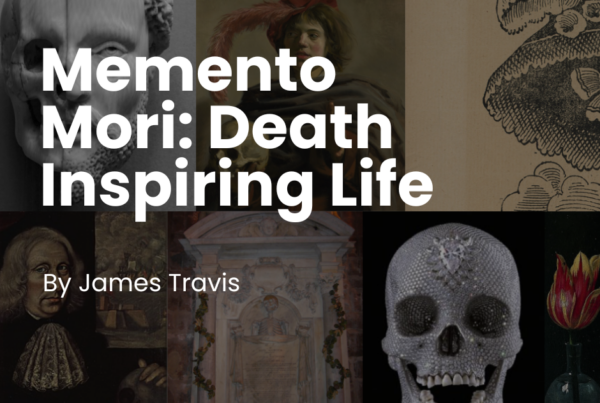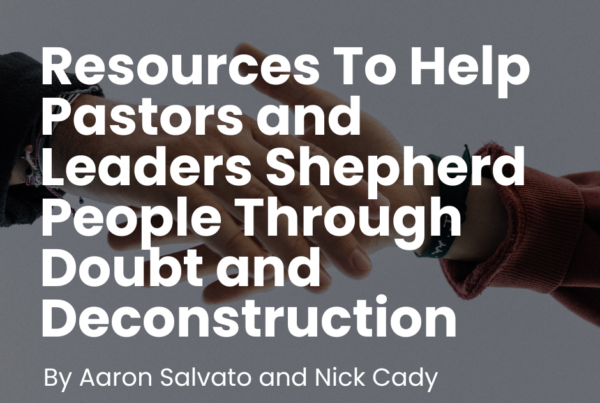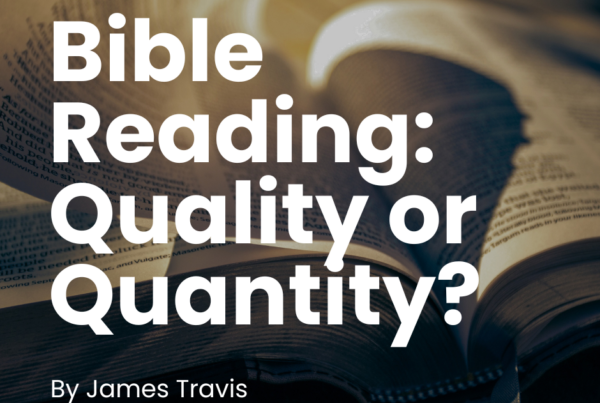
As humans, we all have dreams and aspirations. We want to build, create, and achieve great things. It’s natural to desire success, recognition, and a sense of purpose. However, what happens when our ambitions and desires clash with God’s will for us? In the story of the Tower of Babel, we see a clear example of God intervening in humanity’s pursuits.
In Genesis 11:4 we hear a story about ambitious humans: “Then they said, ‘Come, let us build ourselves a city, with a tower that reaches to the heavens, so that we may make a name for ourselves.'”
Isn’t this just so relatable? The people of Babel were driven by a desire for glory, to achieve greatness and be recognized for their accomplishments.
This same desire is evident in the way we use social media today. We often seek recognition, attention, and validation through the likes, comments, and followers we accumulate. We use social media as a platform to showcase our accomplishments, our best selves, and our curated lives.
The people of Babel wanted to build a tower that would reach the heavens, a monument to their own greatness and power. However, Yahweh saw this as a threat, and so He confused their language, causing them to scatter and abandon their project.
At first glance, this may seem like a harsh punishment. After all, the people of Babel were only trying to achieve their dreams, right? But I propose that there’s more to this story than meets the eye.
Humanity’s Quest for Self-Determination
To understand the Tower of Babel, we must first look at the deeper theological ideas at play. At its core, this story is about humanity’s quest for self-determination. Just as Eve and Adam sought to define good and evil for themselves in the Garden of Eden, so too did the builders of Babel seek to define their own destiny, apart from God’s guidance.
When I said that Yahweh saw the people of Babel’s actions as a threat, you might assume that I meant a threat to His own power or authority. Not the case… Mere mortals could never hope to overturn Yahweh. … It’d be like an ant trying to crush a lumberjack. So impossible it’s actually humorous.
However, I suggest that He knew that Babel was a threat to humanity’s very existence. Yahweh knew that humanity had the power to destroy itself, as was previously seen in the days of Noah. Plus, He knew the fiendish demonic forces were actively seeking to undermine and destroy His creation.
The Tower of Babel represented humanity’s desire for self-glory, a desire that was rooted in pride and the original sin of the demons. They thought they could rule heaven and earth better than God, and this poisonous mentality was then spread to humanity. The pursuit of power and self-glory was a dangerous path that would lead humanity away from God’s will, and ultimately toward destruction.
In our modern world, this idea of submitting to God’s authority can seem archaic and outdated. We’ve been steeped in postmodern philosophy (whether wittingly or unwittingly) that values individual autonomy above all else. We want the freedom to define our own truths and make our own way in the world.
And yet, as Bob Dylan so profoundly observed, “It may be the devil or it may be the Lord, but you’re gonna have to serve somebody.”
Despite our desires for independence and self-determination, we are constantly faced with choices that require us to submit to someone else’s authority, whether it be societal norms, cultural expectations, or even our own inner demons.
The truth is, we all have a master, whether we realize it or not. The question is, who or what are we serving? Are we serving a higher power that embodies love, justice, and compassion? Or are we serving a darker force that thrives on greed, selfishness, and hatred? Dylan’s message is clear: we cannot escape the fact that we are servants, but we do have a choice about who or what we serve.
If we reject God’s authority, we unwittingly submit ourselves to the authority of secular culture and the false gods that manipulate it. We become slaves to our own desires, always seeking more and never finding true satisfaction.
God’s Protective Love
So, why did Yahweh intervene in the Tower of Babel? Was it simply a matter of asserting His own authority over humanity? I propose that it was an act of protective love.
Just as a parent must sometimes say no to a child’s requests in order to keep them safe, so too does God sometimes crush our dreams out of mercy and love for us. He knows what will cause us to stumble, what we can’t handle, and what will ultimately lead us away from Him.
The builders of Babel were so focused on their own goals that they lost sight of God’s plan for humanity. They were building a monument to themselves, rather than building a life of love with their creator and Father.
And so, Yahweh intervened, not to punish them, but to redirect them back to His will.
Submitting to God’s Authority
As modern people, it can be difficult to submit to God’s authority. We want to be in control, to define our own destiny. But what if we were to let go of that desire for control and trust in God’s plan for our lives?
In the same way that a potter molds clay into a beautiful vessel, so too does God shape and guide us toward our true purpose. We may not always understand His methods or His timing, but we can trust that He has our best interests at heart.
It’s funny how we humans are obsessed with building monuments to ourselves. Every statue was erected by someone who thought it would make their name live forever. But let’s be honest, most people pass a statue and are too self-absorbed to even read the name on the plaque. Most statues just sit there covered in pigeon droppings, empty monuments to dead men.
It’s like we’re trying to create a legacy that will outlast our own lives, but in the end, it’s all just a bit silly. What if we focused on building a legacy of love, service, and sacrifice in service of the one name that will outlast us all: Jesus?
Let’s not be like the builders of Babel, seeking to build our own kingdoms at the expense of God’s will.
Gratitude for God Crushing My Dreams
As I reflect on my own life, I’m filled with gratitude for the times when God crushed my dreams. At the time, it was hard to see the purpose behind it all, but looking back, I can clearly see His guiding hand at work.
For example, I remember the soul-crushing feeling of being in elementary school and realizing the girl I had a crush on was never going to like me back. The thing is, if God had let me marry the first girl I ever had a crush on way back on the elementary school playground, I wouldn’t have the wonderful life I have today with my best friend and wife, Brooklynn. We have built a beautiful life together, and I can’t imagine it any other way. To go even further, if God had allowed my first tiny romantic dreams to come true, our son Jack, who brings us so much joy and laughter, wouldn’t exist. That’s sobering!
If God had let me fulfill my teenage dream to go to LA, attend film school, and become an actor/director, I would never have had the amazing life as a youth pastor, a job I consider one of my greatest privileges in life. I’ve had the opportunity to impact the lives of young people in a powerful way, and I have a large group of former students that feel like a second family to me.
And if God had let us move to Ireland like I wanted a few years ago, I wouldn’t have learned the countless valuable lessons I’ve learned here in Oklahoma, lessons about my identity being in who I am to Jesus, and not in what I do. I’ve discovered the beauty and purpose of living a simple life, rooted in community and faith, and I’m grateful for the ways in which God has shaped me through this experience, not to mention the rich ways He’s grown my marriage. I’ve learned to trust God with ministry and life, not my ambition or drive.
Looking back on all of these experiences, I’m humbled and grateful for God’s guidance and protection. He knew what was best for me, even when I didn’t, and He worked all things together for my good. I wouldn’t trade God’s will for anything.
To me, the Tower of Babel is a reminder that God’s ways are not our ways. Sometimes, He must crush our dreams in order to guide us toward His purpose for our lives. It may be difficult to let go of our own desires and submit to His authority, but doing so is the key to finding true fulfillment and purpose in life. We must trust in His guiding hand and be grateful for the ways in which He has worked in our lives.
Conclusion
As we navigate the complexities of modern life, let’s remember that we’re not the masters of our own destiny. We’re called to serve God and follow His plan for our lives. This may require us to let go of our own desires and ambitions, but in doing so, we open ourselves up to the limitless possibilities of His love and grace.
In the end, the story of the Tower of Babel is not a cautionary tale about the dangers of ambition or the perils of human progress. It’s a story about the redemptive power of God’s love and His desire to protect us from ourselves. May we all have the wisdom and courage to submit to His loving authority and find our true purpose in life.










